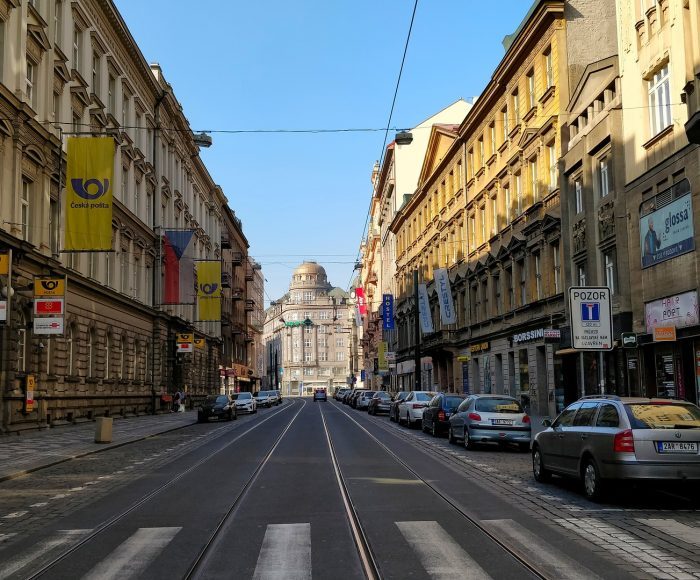Language barriers can be one of the main stressors when moving to a new country. Especially when the language is as complex as Czech!
We’ve put together an essential 10 words and phrases to get you started upon your arrival to the Czech Republic. Knowing these will help you arrive and settle into your new home with just a little extra confidence and ease!
-
Dobrý den – Hello
The most useful phrase, dobrý den is a formal hello that can be used when entering a shop or restaurant, or joining someone in the elevator. When greeting friends, however, you can use the informal ahoj.
-
Děkuju/Děkuji – Thank you
An essential polite word that will make a good impression.
-
Na shledanou – Good bye
When leaving a store, restaurant, or ending a conversation with a clerk, it’s good to use the formal good bye. When saying bye to friends, colleagues or any informal encounter, you can use ahoj.
-
Mluvíte anglicky? – Do you speak English?
-
Nemluvím česky – I don’t speak Czech
Though we’re sure this won’t be true for long, it can be very useful to know how to say you don’t actually speak Czech! Most people in Prague speak good English, so letting them know in a friendly manner that you’re still a learner is a great way to earn some points for effort whilst staying comfortable in English.
-
Napište mi to, prosím – Write it down for me, please
If you find yourself in a situation where English is not an option, it will be useful to have the other person write down what they’re saying. This way you can translate it later with the help of a friend or online. Asking this will be especially useful at various ministries during appointments to not forget dates, addresses and other important details.
-
Zaplatím – I will pay
-
Kartou/Hotově – Card/Cash
When asking for the bill at a restaurant, the easiest thing to say is zaplatím or zaplatíme for plural, if there are more of you. Learning the difference between kartou and hotově will be very useful, as the waiter may ask you this expecting a quick response.
-
Chcete tašku? – Do you need a bag?
-
Mám tašku – I have a bag
A classic checkout interaction. The cashier will probably ask you if you need a bag, so learning the word bag – taška is very important. Extra points if you bring your own bag!
-
Ano/Jo – Yes
-
Ne – No
When speaking informally, jo (pronounced io) can also be used for yes. However, ano is never wrong and can be used in both formal and informal contexts.
-
Ženy – Women
-
Muži – Men
Two key words especially when it comes to public toilets! Sometimes, the alternative páni for gentlemen and dámy for ladies may be used.
-
Otevřeno – Open
-
Zavřeno – Closed
Knowing these two will also help you understand opening hours – otevírací doba.
-
Pomoc – Help
-
Pozor – Attention/Beware
These two words may look similar but have slightly different meanings.
If someone tells you pomoc they are asking for help. It may not necessarily mean they need SOS help, but they might be asking for support: carrying a heavy bag or crossing the road. You can also use this word yourself if you need assistance.
If, instead, you see the word pozor, it means attention/beware. For example, crossroads can say “Pozor Tram”, inviting you to pay attention to trams passing by (as they have precedence, also over pedestrians!).
-
Promiňte / Pardon – Sorry/ Excuse me
Accidentally bumping into someone or asking for space when getting off a tram, these two words are extremely useful.




